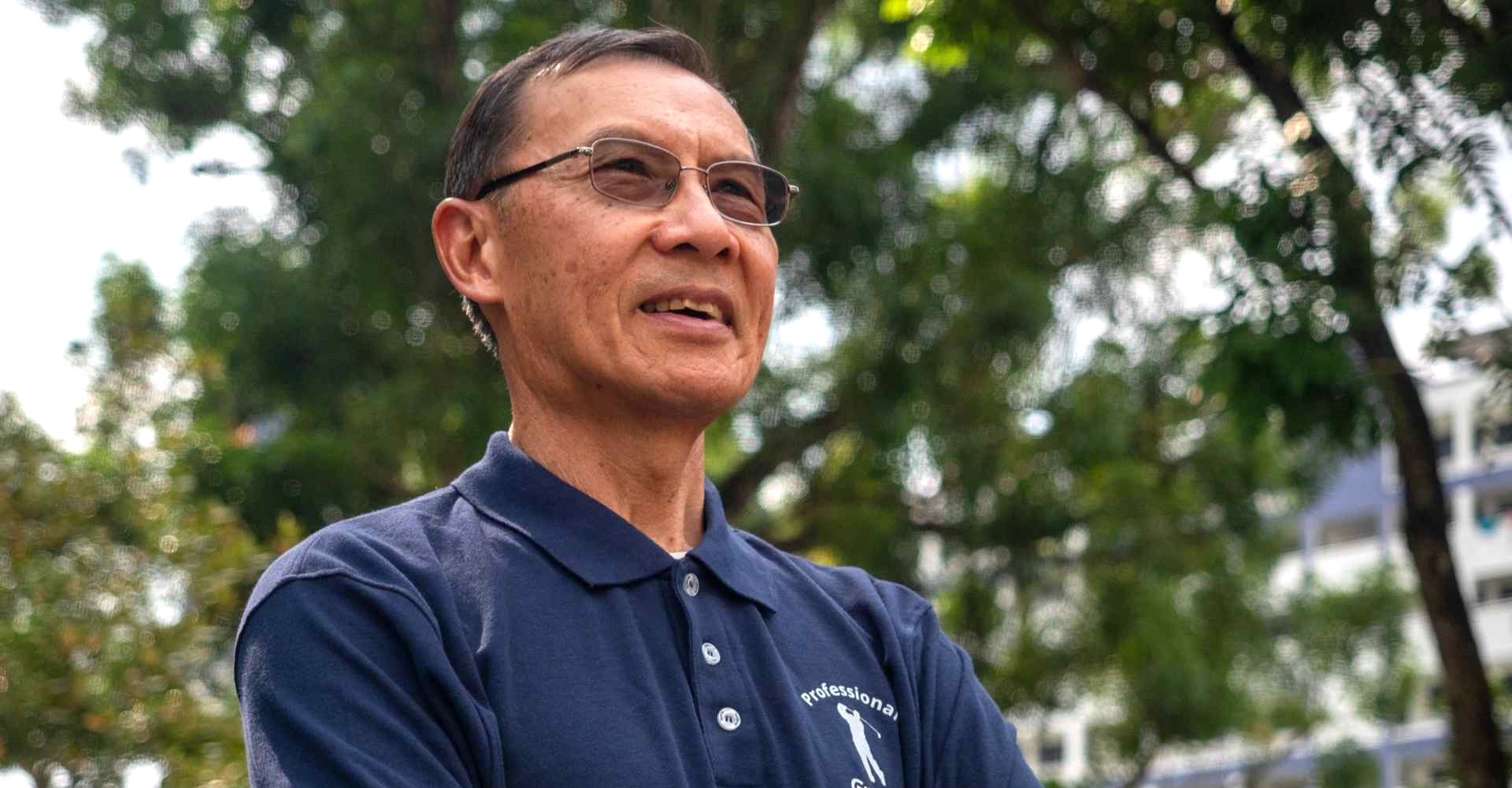From a tender age, David was aware of his mother’s active involvement in church activities and social services. “My mother was known as a protector of women and children. She was a social worker employed by the Social Welfare Department [the predecessor to what is today the National Council of Social Service]. Her role was to look after abused women, and children who were homeless or mistreated by their parents. Her dedication to helping others was evident in everything she did. I have memories of her teaching Sunday school, organising Flag Day events, and raising funds for organisations like the YWCA and various women’s charities.”
Tragically, David’s mother passed away when he was just nine years old. Despite the brevity of their time together, her influence was indelible. “These early memories made a strong impression on me,” David said. It was his mother’s dedication to helping others that would shape his own journey of faith, and commitment to voluntary work.
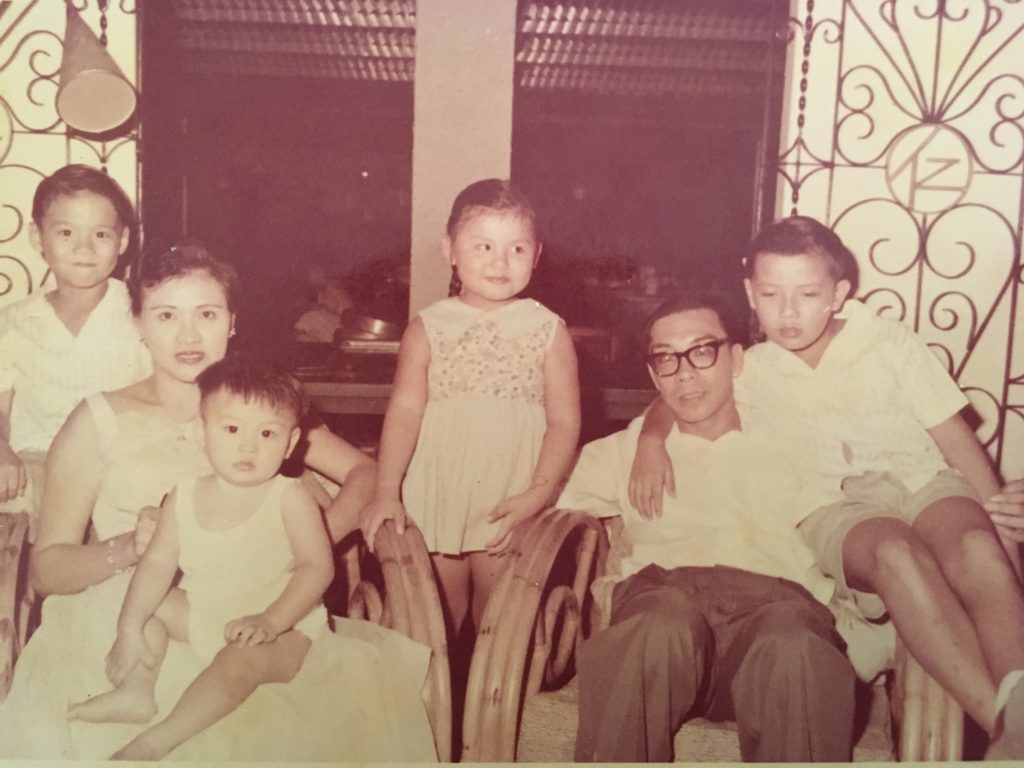
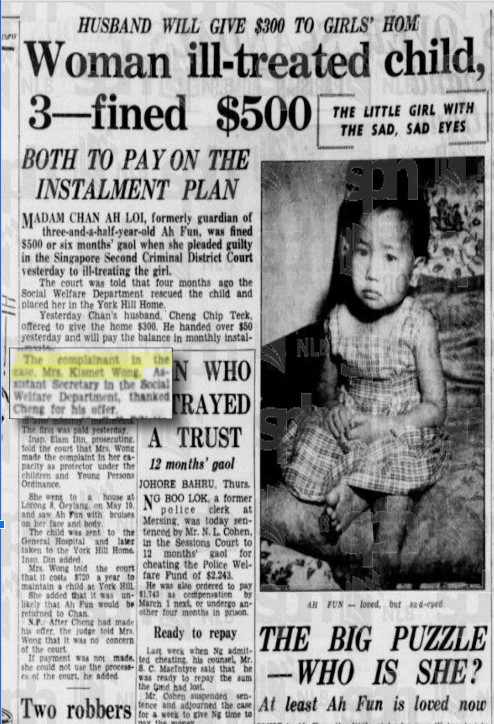
His father’s sister, Barbara Ho stepped in to provide support and guidance for young David after he lost his mother. “Aunty Barbara was a real woman of God who also had a significant influence on my faith. She was an active member of the Women’s Society of Christian Service (WSCS), and ensured that my siblings and I attended Sunday School and remained engaged with the church community. She was involved in various ministries, including the seniors ministry, and her dedication was truly inspiring. I learned from her that serving God is a calling, whether you are ordained or a layperson.”
It was Aunty Barbara’s devotion to her faith and service that instilled in David a deeper understanding of Christianity.
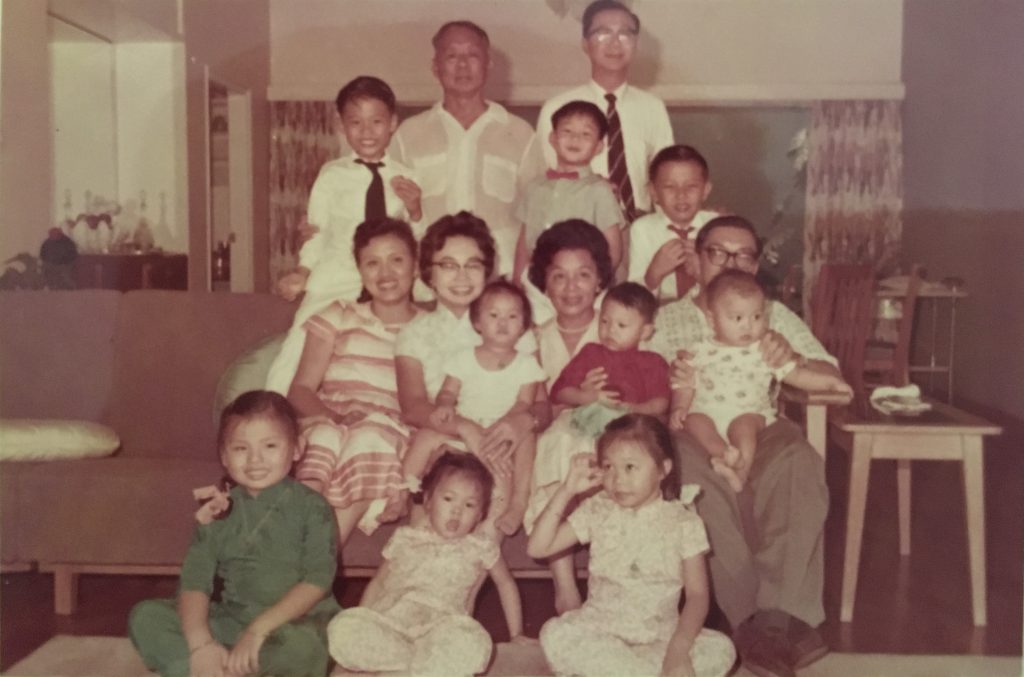
These formative experiences shaped David’s worldview and led to a lifelong commitment to charitable work. “I have been quite actively involved in charities of one kind or another,” David noted. “While I’m not a social worker like my mother, I contribute in other ways, often at an institutional level.”
Pivotal Points in His Journey
At the age of 13 or 14, David made a conscious decision to accept Christ as his Lord and Saviour during a school Christian Fellowship camp. A few years later, he again committed his life to Christ at a crusade led by evangelist Grady Wilson1.
Attending Anglo-Chinese School (ACS) was another building block in increasing his faith. “ACS being a Christian school with weekly chapel services and Christian teachers was very important. Although I wasn’t a leader in the school’s Christian Fellowship, I participated in their camps and found them very impactful.”
From his teenage years, David started to be actively engaged in various forms of Christian service. In secondary school, he was deeply involved with the Boys’ Brigade (BB) which he credits with helping to shape his faith. “The Boys’ Brigade took up a lot of my time with drills, band practice, devotions, and classes. It was a whole-day commitment on Saturdays,” said David.
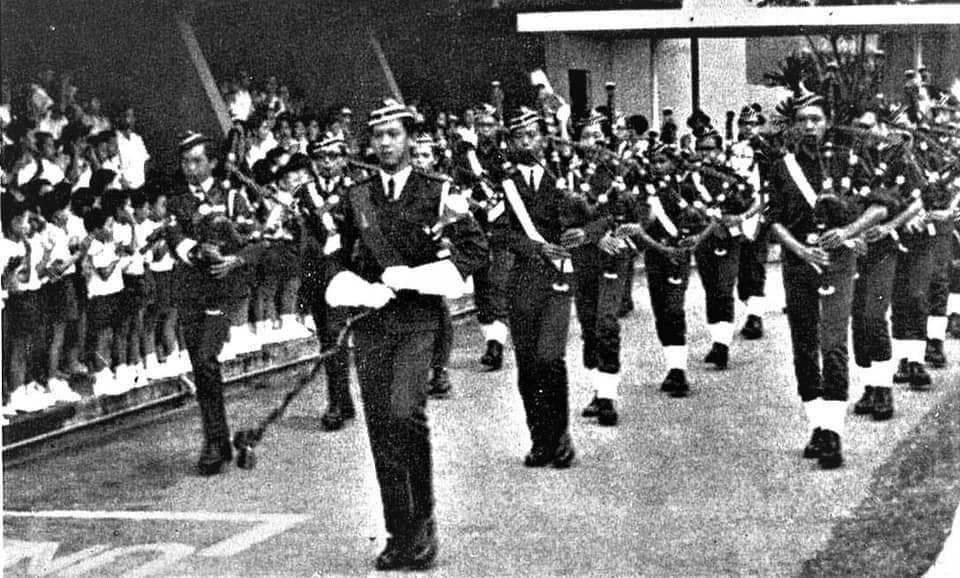
The BB, along with the Christian Fellowship in school, provided a nurturing environment for his spiritual development.
One particularly influential figure during his youth was Miss Richards, the officer-in-charge of the BB junior section, the Life Boys at Wesley. “She set a wonderful example of a caring Christian leader,” David said. “She made sure that our activities were not just about physical training, but also about growing spiritually through Bible study, prayer and worship.”
David’s consistent participation in church activities also reinforced his faith. These experiences had a lasting impact on David. He became more active in church and other Christian organisations, taking on leadership roles. Most notable was how God used his wife, Swee, and him to establish the Cambridge Chinese Christian Fellowship, while they were studying and working in Cambridge, UK. His involvement deepened his faith, and he developed a regular practice of quiet time and Bible study.
As David grew older, his commitment to service extended beyond the walls of the church. While he considered going into full-time Christian ministry, he felt that God had a different path for him. He received both the President’s Scholarship2 and the SAF Scholarship3, which allowed him to study economics at Cambridge. David then qualified as a chartered accountant.
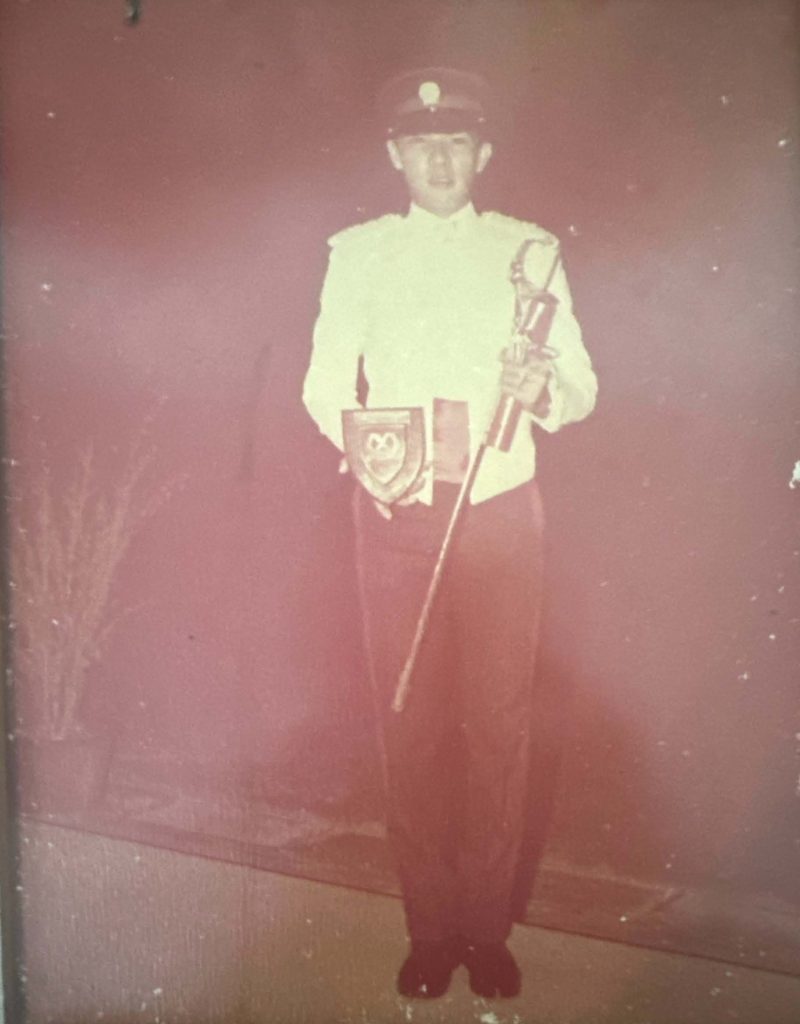
David’s career journey reflects his trust in God’s guidance through various transitions.
“I started in the Air Force and had to decide whether to stay on after fulfilling my bond. Although I was offered the chance to continue, I felt called to move in a different direction. This led me to Ernst & Young, where I transitioned from a pilot to a management consultant. Initially, I was disappointed to leave the Air Force, but God’s hand was evident in opening new doors for me.”
At Ernst & Young, he had a God-given opportunity to contribute as part of the MRT-Bus Integration Task Force, which played a pivotal role in bringing together the bus and MRT services in the development of Singapore’s integrated public transport system. God used this challenging project to provide him with an invaluable learning experience, which helped him transition his career from the public sector to the private sector, from the military to the commercial sector.
“Throughout my career, I have often felt a sense of human disappointment when things didn’t go as planned. However, I have always trusted that God has a purpose for these changes. Each shift, whether seen as a setback or a new direction, has been part of His plan to bless me richly.
“Even as I navigated these professional transitions, I kept my faith at the centre. For example, my unexpected shift from flying to logistics in the Air Force seemed like a setback. But this experience broadened my skills and prepared me for future roles. Similarly, at Ernst & Young, starting in management consulting instead of in audit helped me develop a diverse skill set that has been invaluable throughout my career.
“Overall, whether experiencing high moments or low, I see God’s guiding hand in all aspects of my life. Each challenge and triumph has contributed to my growth and faith, reinforcing the belief that God’s love, mercy, and grace are ever-present.
“That’s the beauty of servant leadership. It’s about trusting God’s timing and direction, even when it leads us down unexpected paths. It’s a journey of faith, marked by obedience and a willingness to serve others,” said David.
David’s wife, Swee, affirms that her husband’s journey of faith has always been marked by a sensitivity to God’s prompting and guidance. “He has a unique ability to foresee future needs and prepare for them effectively. For instance, when David was in his 20s and we had children, he recognised the importance of maintaining a strong bond with me beyond our parenting years. He initiated shared activities such as ballroom dancing and golfing, which we continue to enjoy together.”
Church Was Second Home
David recalls that WMC was a second home in his growing-up years. This was very much in the footsteps of his parents, Cecil and Kismet, who were there from around 1952, after they returned from Britain.
As a young lad, WMC offered a small and intimate community where everyone knew each other well. Here, he attended Sunday School and kindergarten, before joining the Life Boys, the junior section of the Boys’ Brigade.
“Our church was a lot smaller and the senior pastor lived at the ‘manse’ or parsonage that was located where the church office building currently sits. We would go to his home quite often, and yes, I had a lot of fun in church! I remember running all around the church grounds, hiding in little nooks and crannies, playing with my brother, sister and friends, while my mother was at choir practice!”
Overall, these experiences were formative and shaped his belief that being part of a church community is essential for spiritual growth and connection with God.
“I feel strongly that being part of God’s church means contributing to the community. It’s not just about personal spiritual growth,” he emphasised. “I don’t think God wants us to be solitary Christians, worshipping and praying alone. A healthy Christian life is lived as part of a community.”
David’s close interaction with pastors and church staff during his childhood also influenced his view on ministry.
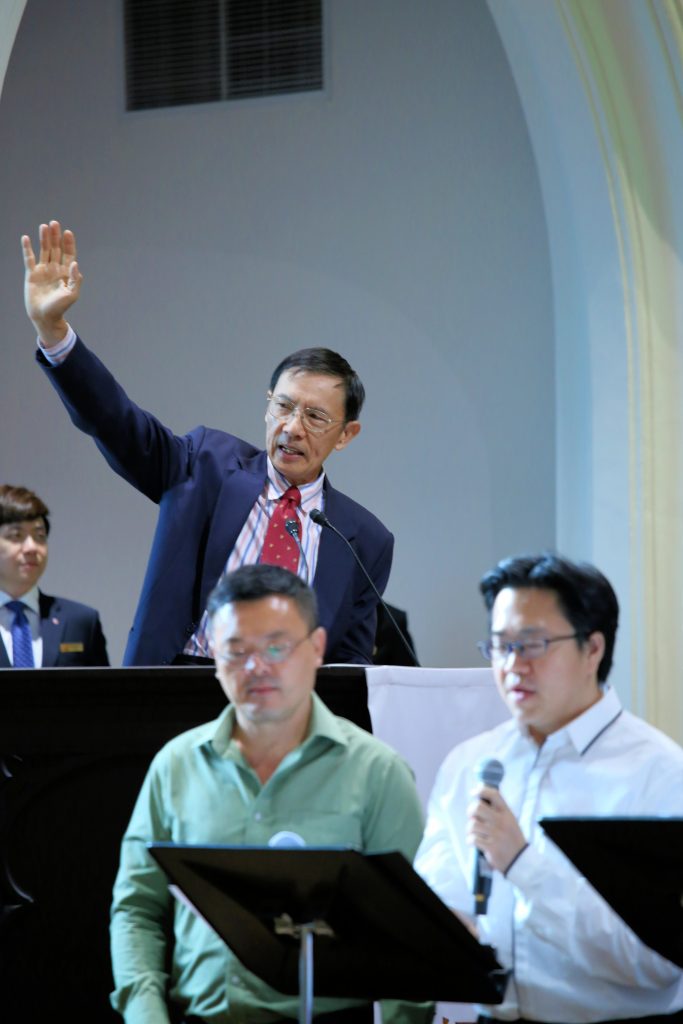
“Whether ordained or not, we all have a calling to serve in different ways. It’s a continuum where every role is important. We all contribute to preparing Christ’s bride, the Church, for His return.”
David was very much the “big brother” whom younger brothers, Norman and Gordon, looked up to, and whose influence has shaped, to a large part, their roles and vocations today.
Norman looks up to David as a role model. “David was always the model son and student. Following two years behind him was easy. It was as if he cleared the path for me to follow. In school, I followed him joining the Boys’ Brigade, the bagpipe band, and playing hockey and cricket for the school.”
For youngest brother, Gordon, it was David who convinced him to pursue his passion for theology without delay. Gordon recounts: “Whilst many were advising the value of pursuing a secular degree first, David told me that any good university degree — even if in the field of theology — would provide similar training in opening the mind to careful, rigorous thinking. This advice was one of the factors which led me to pursue theology as my first degree, rather than as my second. This is why I became a pastor more quickly.
“He also inspired me to take up hockey, athletics and cross-country running — the sports he was involved in.”
Rev Dr Norman Wong is today the Chaplain of the Methodist Welfare Services (MWS). Rev Dr Gordon Wong served as President of the Trinity Annual Conference for eight years, before he was consecrated as Bishop of the Methodist Church in Singapore in 2020, and will be serving till the end of 2024.
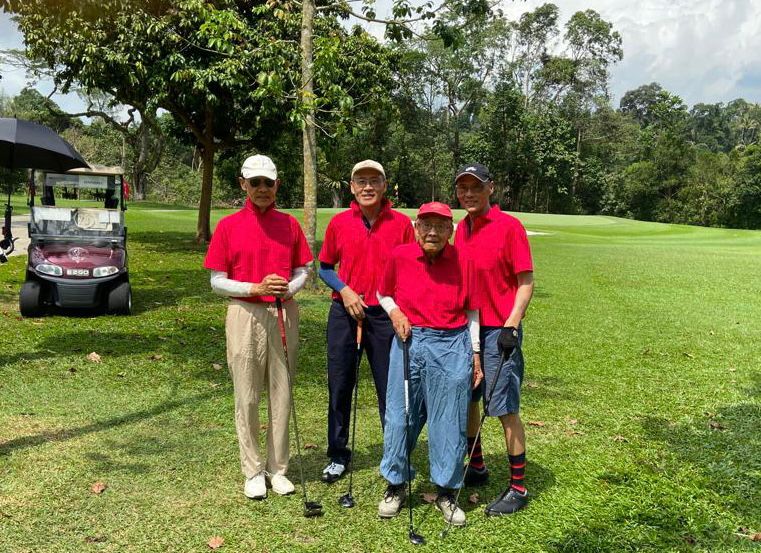
During the COVID-19 pandemic which saw strict social restrictions in Singapore for almost three years from 2020, David made an extra effort to bring the extended Wong family in different parts of the world together, via weekly virtual gatherings on Zoom, to connect and encourage one another. These sessions were more than just chit-chat — they included a Bible passage that the younger children helped to read, and a sharing of a reflection, which has helped to encourage the faith of all the family members.
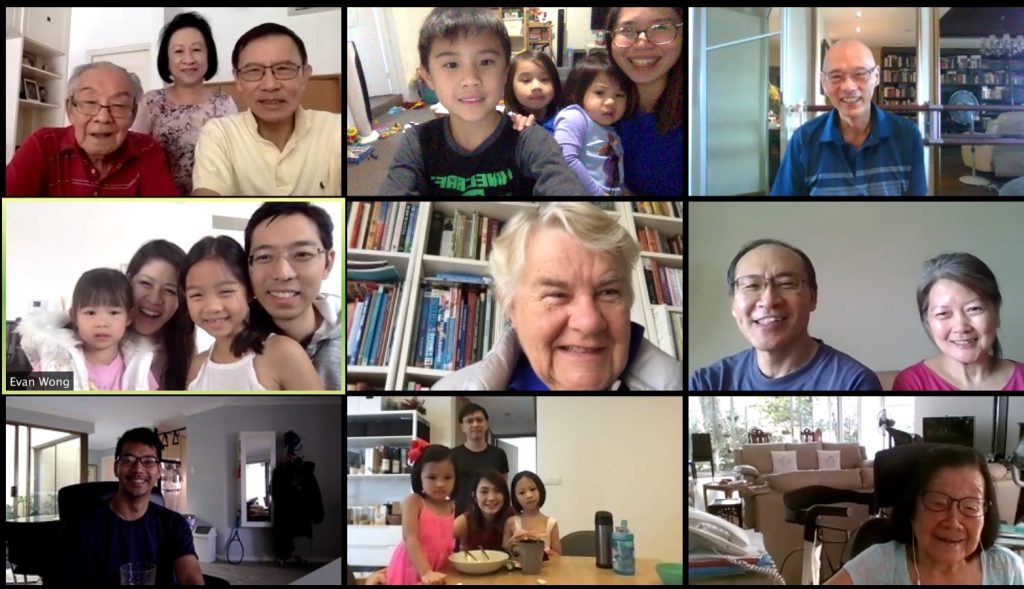
“This helped to place Christ at the centre of our family — especially in the minds of the little ones. David makes a special effort to contact and connect people in the extended family. This shows his commitment to promoting positive human interactions in a world where it is easy to become isolated and lonely,” said Bishop Wong.
A Willingness to Follow Where God Led
“It started with a knock on my door. I was studying in my room at Fitzwilliam College (University of Cambridge), and opened the door to see someone who introduced himself as Abraham Chian, a Christian brother. A quantum physicist, he was born in Brazil, studied in America and then in the United Kingdom. He invited me to join a group of students praying for China.”
It started as a simple prayer group, but God had bigger plans. Later, Abraham and David were challenged by the Holy Spirit to set up the Cambridge Chinese Christian Fellowship (CCCF) that was part of the Chinese Overseas Christian Mission. He witnessed how God blessed the ministry, bringing students from the University and polytechnic together with practising nurses in fellowship.
That was also where David met his wife Tan Swee Kuan, a midwifery sister at the local maternity hospital, “…a KL girl!”. David graduated in 1975 and married Swee in Cambridge before returning to Singapore in 1978.

During their days in this university town, there was just a handful of Chinese restaurants. The families running them were from either Hong Kong or Canton. The work was hard, and the hours long and arduous. The adults had little time for their children, even as the families struggled with English, and settling down in a new environment.
“We saw a crying need. Swee and I then started a ministry for the children of these Chinese migrant families. Every week, usually on Sunday afternoons, we would gather eight to 10 children, piling them into our car, and take them on outings to parks or other recreational spots. This provided the children a break from their routine, helping them learn English through Bible stories and parables, while also giving their parents some much-needed respite.
“We had no grand plan or agenda, just a willingness to follow where God led us. And He never disappointed. Our ministry grew, and we saw lives changed by His love. These opportunities to serve come along, and you just do what you feel is right, and the Holy Spirit leads you.”
A Mission-Minded Perspective
“In Cambridge, I learnt about the lives of Hudson Taylor4 and the Cambridge Seven5 who became missionaries in China. It was about sharing the love of Christ with people beyond our borders, while the needs of the local people were looked after by social concerns. When I was invited to chair the missions committee at WMC in 1980, I found that it focused mainly on the sponsorship of Trinity Theological College6 (TTC) students, and met just twice a year. I felt God’s call to serve Him in this ministry, and brought together a committee to bring God’s call to Wesley, to serve in the mission field overseas.”
This did not happen overnight. The Church leadership, at that time, prioritised local evangelism. In obedience, the Missions Committee spearheaded a ground-up initiative to reach out to the people in Tampines new town. Volunteers from WMC were challenged to serve God by meeting with residents in Tampines to form small groups which met there regularly for Bible study. In August 1989, the Tampines Outreach Project was birthed and, by January 1991, the first Sunday service was conducted at St George’s Chapel in Changi. By November the same year, the Chapel was approved as a local conference by TRAC, and was named Tampines Methodist Church. It was later renamed Living Hope Methodist Church (LHMC). Today LHMC has an English and a Mandarin-cum-Hokkien worship service every Sunday, serving a membership of over 350. Their local community outreach is to the elderly, to families, as well as to prisoners in Changi Prison and their families. In acknowledgement of their genesis as a mission outreach church planting project, it is heartwarming to note that LHMC members are today involved in overseas missions, through their work at a Methodist centre just outside Bangkok, Thailand.
David reflects: “Looking back, I can see how God used the experiences gained in planting the church at Tampines to guide our Missions Committee in the subsequent church-planting projects overseas. Especially the planting of the church at Nong Bua Lamphu in northeastern Thailand, and adopting an unreached people group in East Asia.”
As WMC started sending and supporting missionaries overseas, the Church began organising mission trips to the field. This provided exposure to the work of missions for our church members. These mission trips were also an expression of our support for the missionaries in the field. David recounts one such trip to visit a missionary in Central Asia.
“The journey was complex and was quite an adventure! It involved multiple stages. I had to traverse three cities in a South Asian country before waiting for two days for a seat on a Red Cross flight to a city in Central Asia. Enroute to visiting our missionary, I had to shelter overnight in an abandoned ambassador’s residence, protected by sandbags up to the roof, and without any water or electricity! Returning home to Singapore was another challenge, this time on a United Nations’ flight as no commercial flights operated into the country! God guided and protected me throughout the entire journey.”
During this visit, David provided much-needed moral and spiritual support to the missionary, as well as helped the team with setting up an accounting spreadsheet for managing donations and expenses.
Looking back, however, David acknowledges the role of God’s guidance and the transformative power of answering His call. He shares, “Service is part of the Christian faith …. If you love the Lord, He will call you to a position of service.”
Being More Salt than Light
Looking back at David’s life, one aspect stood out. There was always a constant awareness of and deference to God’s Word and will in his journey through his youth and, later on, profession, career, and personal life.
He reflects: “I have always remained open to where God leads me. In each job and every role He assigns, I’ve found that all I need to do is trust in God’s leading, and commit myself to serving him in whatever He sends my way.
“I’m reminded of the verses in Matthew, where we are called to be the salt of the earth, and the light of the world. Very often we put these two together, but in my mind, I am more salt than light. What do I mean by that? As salt, you’re there to make sure that things don’t deteriorate, that they are fit for their purpose and they do well. I’m less of a light! I don’t shine very brightly! I’m not an evangelist, but I work to ensure that the organisations I serve in are true to their mission, and that they serve God faithfully, and share Christ’s love with the community.”
For David, his faith and service are tightly linked — to have faith is to serve, and serving is part of his faith. He chooses to remain open to serving wherever God leads, saying, “When I am invited to take on a position with an organisation, I always pray about it, check it out, and will only accept after I am convicted that it is something God is calling me to do.”
These opportunities have included serving on the boards of the Methodist Welfare Services (MWS), Republic Polytechnic, Singapore Chinese Girls School, YMCA of Singapore, National Council on Problem Gambling and, of course, at WMC in various leadership positions over the decades. Across the organisations where he has served over the years, David’s roles have included fundraising, outreach, mentoring, leading Bible study and providing spiritual guidance, reflecting his belief in serving God wherever he is and in whatever way he can.
At MWS, which today serves more than 11,000 beneficiaries including children from disadvantaged backgrounds, youths at risk, families in distress, seniors who are socially isolated, and the chronically ill and destitute, David has held different appointments with the Board of Governance and various sub-committees including Finance, Audit, Investment and Nomination. He also served as Chairperson from 2011 to 2015. “I can tell you that MWS is a really Christ-centred organisation. Traditionally, social agencies are either beneficiary-centred or donor-centred, focusing heavily on fundraising and programme execution. At MWS, Christians, in particular Methodists, share Christ’s love with the community through serving the beneficiaries.
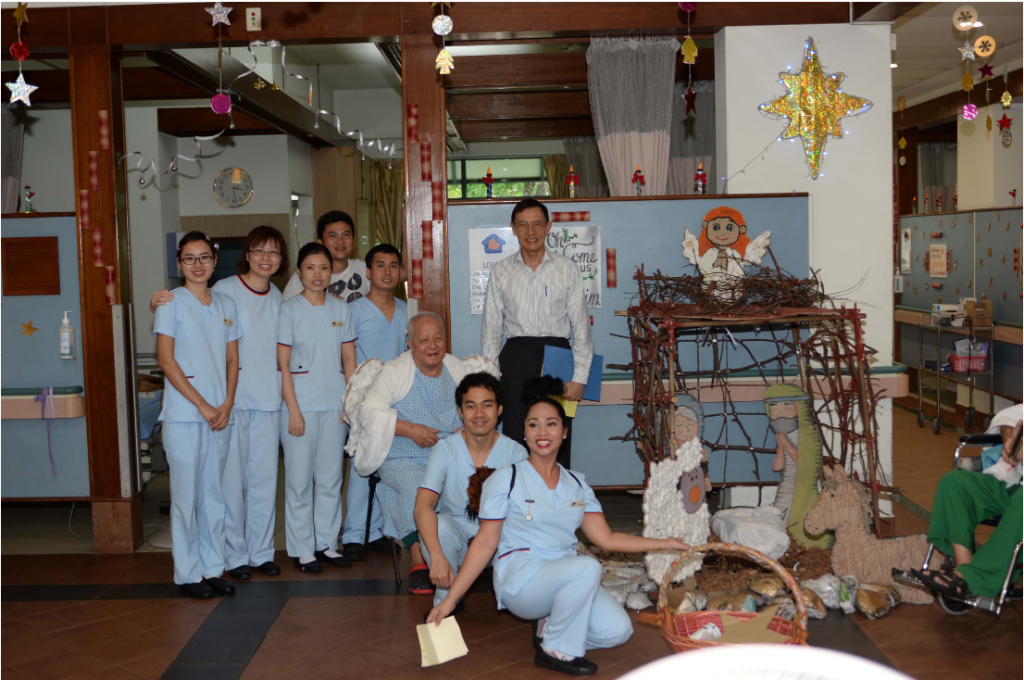
“The work at MWS is fundamentally a ministry. During my time with MWS, we introduced its chaplaincy programme to add a spiritual dimension to the work there. In addition to traditional duties, the chaplain helps staff and volunteers to see their service as a form of worship, whether they are visiting the elderly, leading exercises or teaching. This perspective enriches their spiritual lives and adds deeper meaning to their service.”
For Mrs Tan Ee Leng, who worked with David when she was Chairperson of MWS, he is someone who lives up to the exhortation in Ephesians 4:2,3 — “Be completely humble and gentle; be patient, bearing with one another love. Make every effort to keep the unity of the Spirit through the bond of peace.”
Ee Leng shared: “There was a time when increased funding was needed as MWS was growing. A significant issue was whether MWS should accept funding from the Tote Board. After numerous meetings and discussions between the MWS Board of Governors (BOG) and partnering Methodist Churches, opinions varied widely, and the MWS BOG was evenly split on the matter. I had to use my casting vote to break the impasse. After that, David played a significant role in the efforts to restore unity and goodwill and to develop strategies to raise the necessary funds. He worked quietly, without complaint or judgement, particularly in fundraising, and fostered unity and peace within the organisation.”
“I’ve Always Sensed that I’m His Child”
There have been inevitable ups and downs in David’s life. Yet he philosophically says: “I don’t see life in terms of dramatic highs and lows. There are times when I feel closer to God and times when I feel more distant, but I’ve always sensed that I’m His child.
“Yes, there have been occasions when I felt a sense of secular disappointment when things didn’t go as planned. However, I have always trusted that God has a purpose for these changes. Each shift, whether seen as a setback or a new direction, has been part of His plan to bless me richly.
“Overall, whether experiencing high moments or low, I see God’s guiding hand in all aspects of my life. Each challenge and triumph has contributed to my growth and faith, reinforcing the belief that God’s love, mercy, and grace are ever-present.”
This was especially the case when David and Swee lost their first-born child.
“Swee had complications during pregnancy and spent five months in the hospital. We prayed fervently for our baby’s survival, but he was born too premature to make it. It was a heartbreaking experience. My wife, especially, went through immense physical and emotional pain. Despite the loss, we leaned heavily on God and received support from our Christian brothers and sisters, which helped us navigate this dark period.
“This tragedy strengthened our faith and our resolve to start a family. A couple of years later, my wife became pregnant again. Due to her previous complications, she had to spend another three months in the hospital as a precaution. This time, our son was born healthy, which brought immense joy. We went on to have another son, and today, both of them are thriving with wonderful families of their own. Looking back, what seemed like a devastating low point was part of a journey that ultimately brought us immense blessings.”
Their two sons and daughters-in-law have blessed David and Swee with five grandchildren.
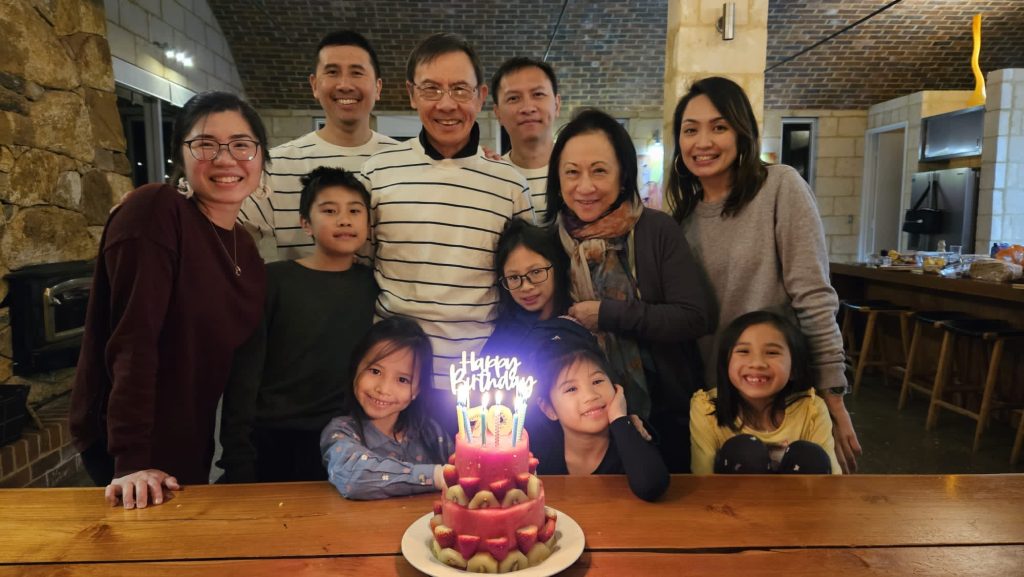
From Trusting to Wholehearted Devotion
In his earlier years, David’s favourite scripture verse was Proverbs 3:5–6 which emphasises trusting in the Lord and acknowledging Him in all ways.
“For many years, this was how my life has been characterised — I trusted in the Lord, and I acknowledged Him, so that everyone I meet knows that I am a Christian. In more recent years, the Holy Spirit has helped me notice these verses in Numbers and Deuteronomy. They point to the reason why God chose to bless only Caleb and Joshua out of the 12 spies. Because Joshua and Caleb served God whole-heartedly, God enabled them to enter the Promised Land. Now, it’s no longer about achieving things and trusting God for challenges, but it’s more that my heart should be totally devoted to God — to wholeheartedly serve Him.”
King David spoke in Psalm 119:2 — “Blessed are those who keep his statutes, and seek him with all their heart”, and in verse 9 — “How can a young person stay on the path of purity? By living according to your word.” The theme of these verses, of seeking God with one’s whole heart, resonated very much with David. David has now adopted these verses as guiding principles for his faith, even making “follow God wholeheartedly” his family motto.
Now that David is in his eighth decade of life, he admits: “My senses are not as sharp as they once were. I can’t see, hear, or run as well as I used to, a constant reminder that I am dying. I estimate that I have about five or six years left. It doesn’t depress me; instead, it motivates me to live fully and purposefully. I am organised and ready to go whenever the Lord calls me.”
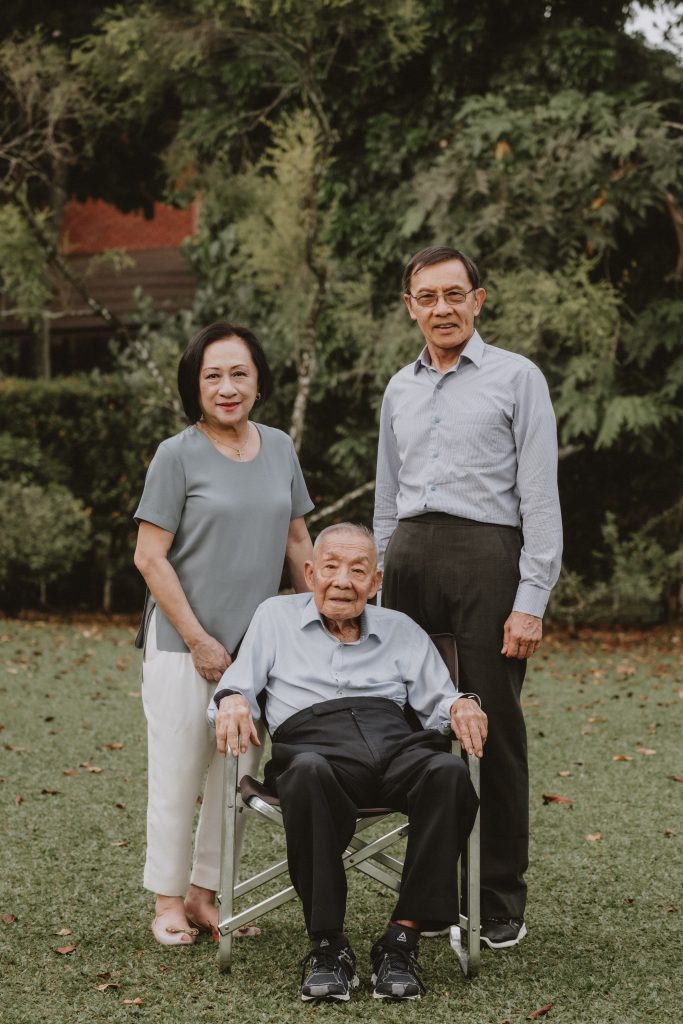
“If a doctor tells you that you have five years to live, it sharpens your focus. You start asking, ‘What am I going to do with these five years?’ For me, the answer is clear: I will serve the Lord in whatever way He desires. I will use my remaining time to fulfil His purpose for me, and to spend it with those I love.
“Embracing mortality is not about fear or sadness but about recognising the preciousness of life and making the most of every moment.”
Indeed, David continues to make the most of each day, savouring simple blessings and giving thanks to a loving and merciful God.
“From the moment I wake up each day, I feel a deep sense of God’s presence. It’s not just in dramatic events like near-death experiences; it’s in the simple, daily blessings. For instance, when I sit down for breakfast, I thank the Lord for the privilege of enjoying a meal in comfort, something not everyone can do.” This daily gratitude underscores his response to God’s love and mercy.

